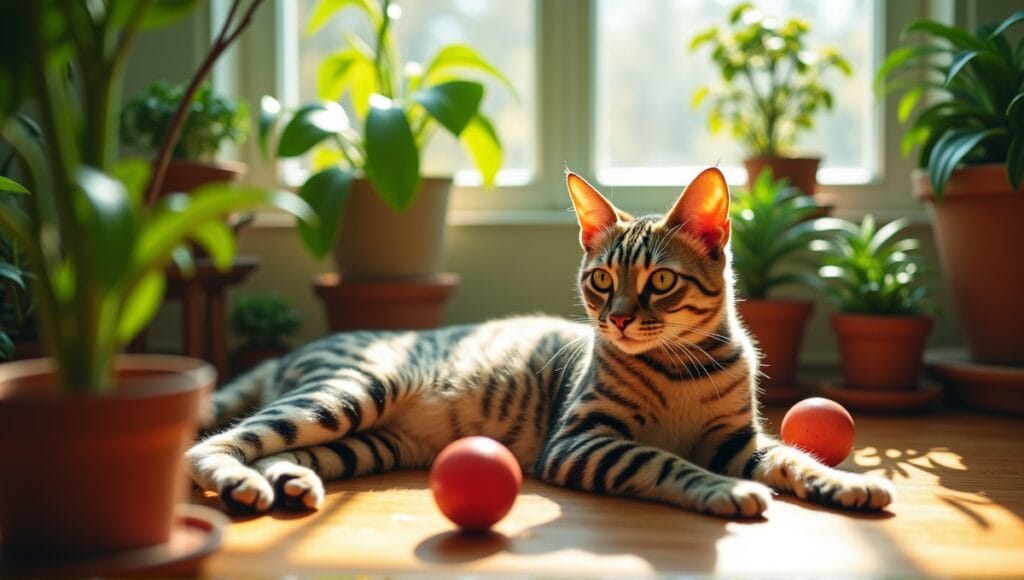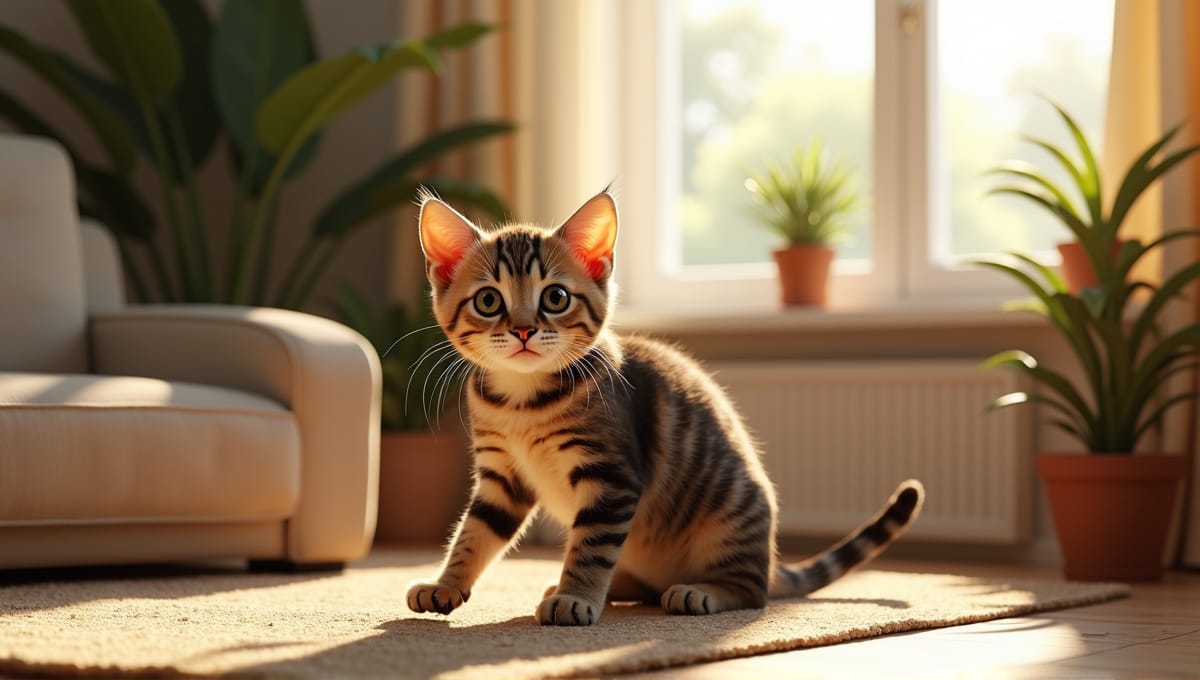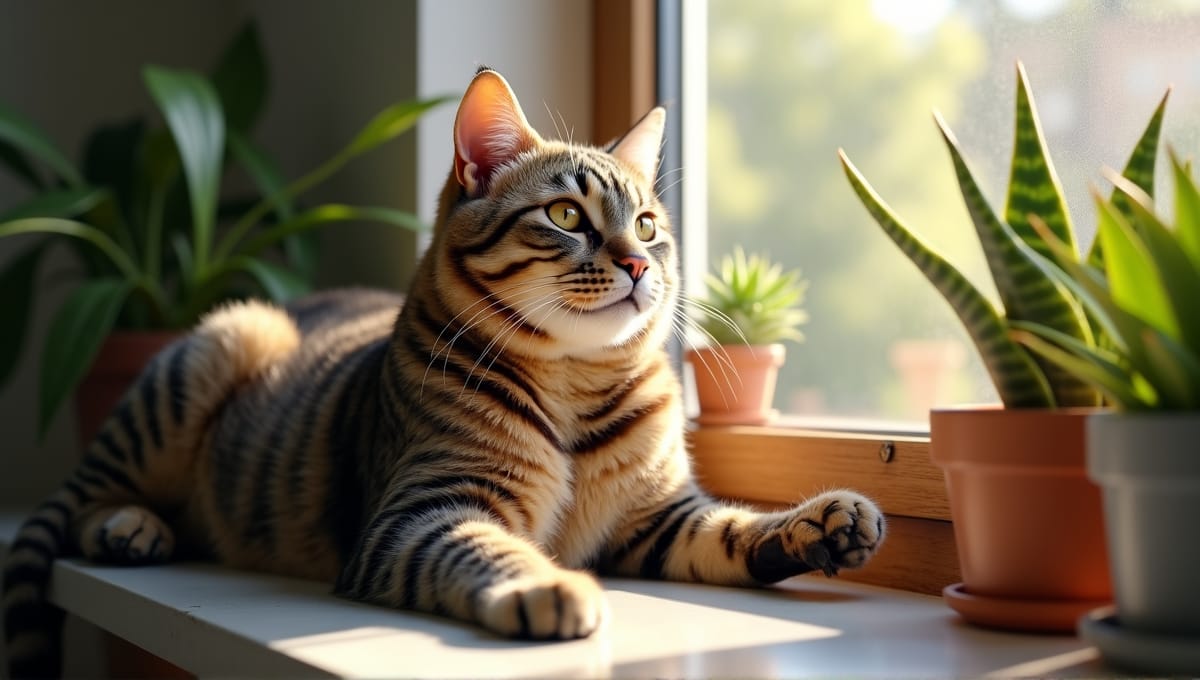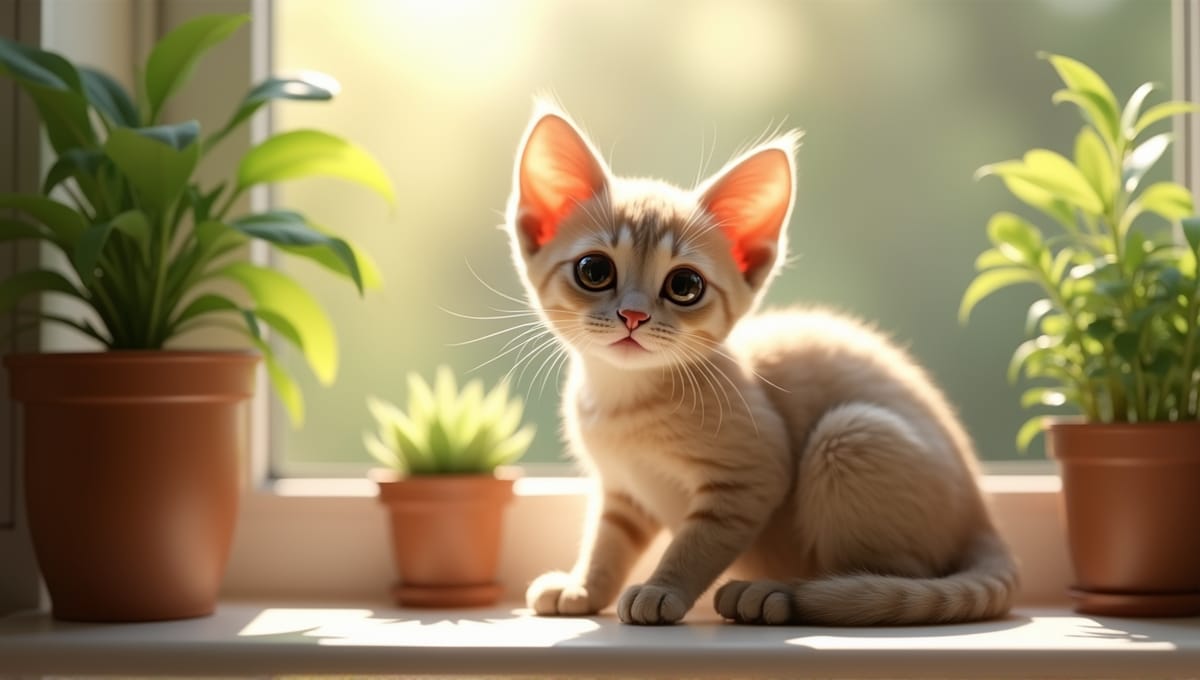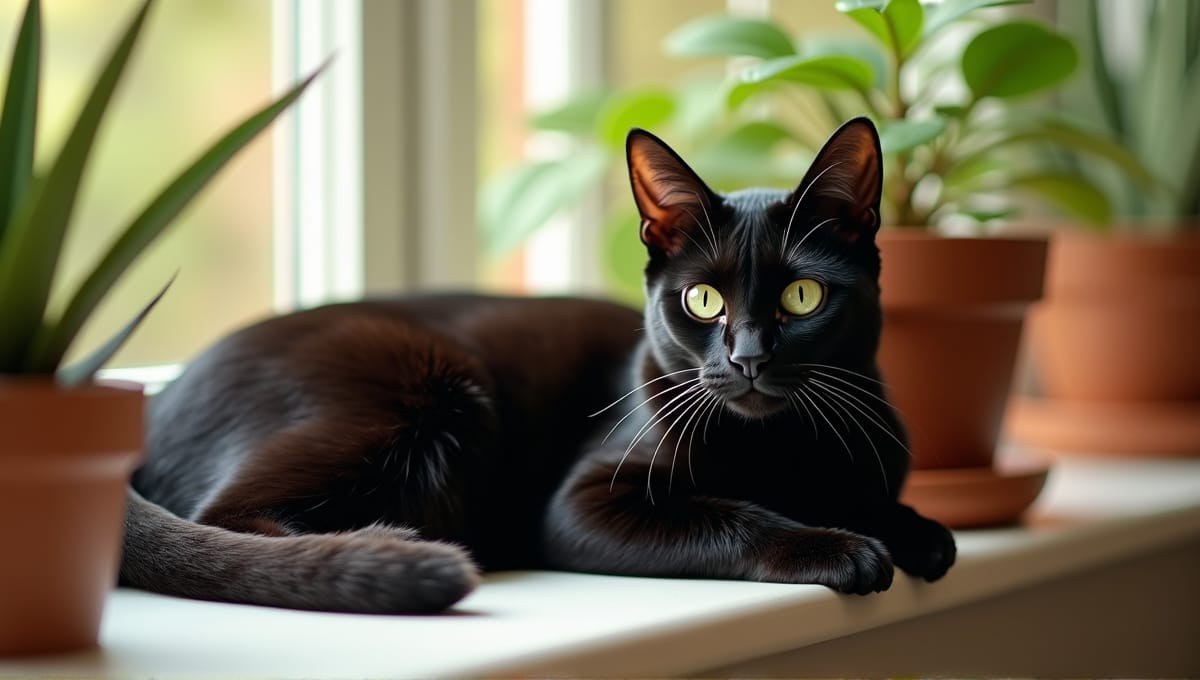Exotic cats are intriguing, challenging animals. I’ve owned several exotic breeds, and I can tell you they demand specific care and attention.
In the next section, you’ll discover everything you need to know to ensure these special cats are healthy and happy. From diet to habitat, exotic cats have very different care requirements than domestic cats.
Understanding Exotic Cat Species

Exotic cat breeds are essentially wild cat species that people keep as pets – they’re not your average domestic cat. These distinctive animals have unique care requirements, and you may be wondering what qualifies as an exotic cat. Here are some of the most common exotic cat breeds:
- Servals
- Caracals
- Ocelots
- Savannah cats
- Bengal cats
Owning an exotic cat is not as straightforward as owning a regular domestic cat, as there are legal considerations to keep in mind. Many places have laws against keeping wild animals as pets, and others require special permits. Therefore, before you even begin to consider purchasing an exotic cat, it is essential to research your local laws governing exotic cat ownership.
Exotic cats are also much different from domestic cats. They are often much larger, more energetic, and have more significant wild instincts. They also have more advanced care requirements compared to domestic cats, such as specialized diets, larger living spaces, and expert veterinary care. As a result, they are not suitable for most people, and only highly experienced pet owners should keep an exotic cat.
Creating a Suitable Habitat for Exotic Cats
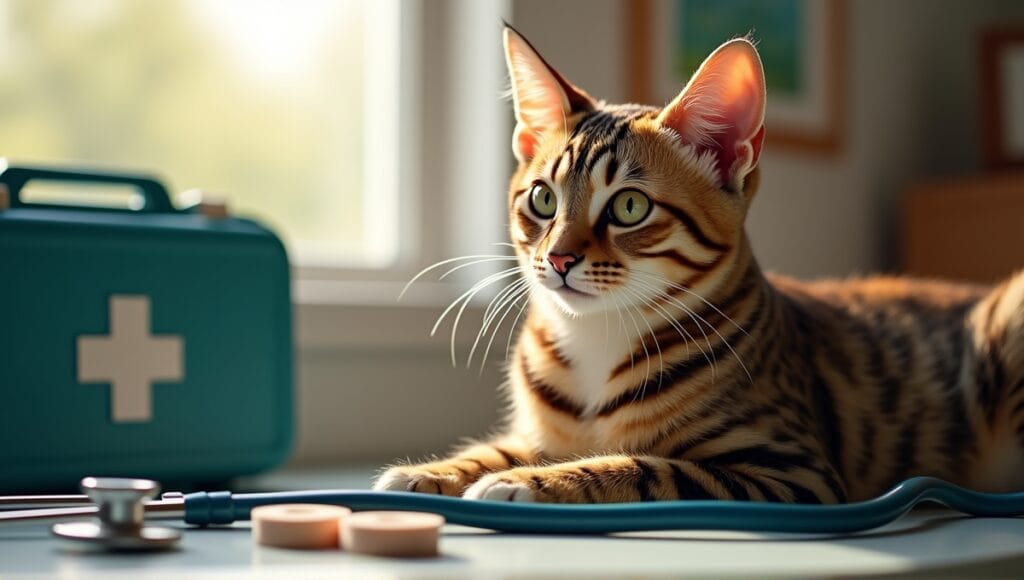
Exotic cats require a lot of space. The exact amount of space you’ll need depends on the species. For example, a serval requires at least 1,000 square feet of outdoor space. Smaller exotic cats may require less, but still significantly more than a domestic cat.
An exotic cat enclosure must be escape-proof. This means high fences or walls. Additionally, the habitat should resemble their natural environment, including:
- Climbing structures
- Hiding places
- Water sources
- Natural substrate
Some owners keep their exotic cats inside, which can work. However, if you plan to keep the cat indoors, you’ll still need to devote a significant portion of your house to the cat. Outdoor enclosures are preferred, as they allow the cat to experience natural sunlight and weather.
Enrichment is essential for exotic cats. They require mental stimulation. To ensure your cat has plenty of mental stimulation, consider introducing the following to their habitat:
- Puzzle feeders
- Rotating toys
- Scent enrichment
- Perches at different heights
Keep in mind that exotic cats aren’t domestic cats. They have their own specific requirements in terms of their habitat design to remain healthy and happy. Therefore, designing the right habitat is a key component of the cat’s health and happiness.
Nutrition and Feeding for Exotic Cats

Feeding exotic cats is quite different from feeding an average house cat, as these animals have dietary needs that align with their wild counterparts. Most exotic cats are obligate carnivores, meaning they require a diet consisting almost exclusively of animal protein.
In the wild, exotic cats eat whole prey, which contains all the nutrients they need. Therefore, your goal as a pet owner is to replicate this diet as closely as possible. Here are some of the foods you can feed exotic cats:
- Whole prey items (i.e., mice, rabbits, chicks)
- Raw meat diets designed for exotic cats
- High-quality commercial exotic cat food
- Supplements recommended by an exotic animal vet
Feeding schedules can vary by species and individual preferences. Some exotic cats may do well with one large meal per day, while others may need several smaller meals. A veterinarian who specializes in exotic animals can help you determine the best feeding schedule for your cat.
It’s absolutely crucial to practice portion control. Many exotic cats in captivity are overweight, which can cause a range of health issues. Therefore, you must closely monitor your cat’s weight and adjust portions as necessary.
Finally, don’t forget about water! Ensure fresh, clean water is always available. Some exotic cats prefer to drink from a stream, so offering a cat water fountain can help encourage your cat to drink more water. Proper hydration is also critical to an exotic cat’s health.
Health Care for Exotic Cats
Exotic cats have unique health risks. They are more likely to suffer from specific health problems that you generally don’t see in domestic cats, such as:
- Metabolic bone disease
- Nutritional deficiencies
- Stress-related diseases
- Zoonotic diseases
Vaccinations and parasite prevention are critical. Exotic cats are susceptible to the same diseases as domestic cats, so be sure to keep them updated on core feline vaccines. You’ll also need to administer regular deworming and flea and tick prevention. However, the same products that work for domestic cats aren’t always safe for exotic species, so you’ll need to work with a specialized vet to figure out the right prevention strategy.
Locating a vet with experience treating exotic cats is a major challenge. Not all vets are capable of treating these unique animals, so you may need to travel to work with a qualified exotic animal vet. It may be a hassle, but it’s the only way to ensure your cat receives the necessary care.
Regular check-ups are a must. Exotic cats are experts at hiding sickness. By the time they start showing symptoms, a health issue could be quite advanced. If you take your cat to a vet annually or bi-annually, you can catch potential problems early on. During these check-ups, request that the vet performs a physical exam, blood work, and a fecal test.
Behavior and Training of Exotic Cats

Understanding the innate behaviors of exotic cats is critical as they still have many of their wild instincts. Some of the behaviors they exhibit may seem strange or troublesome to us, but they’re often perfectly normal for their species.
Socializing exotic cats is important as it helps them feel at ease with humans. If possible, start socializing them when they’re young. Expose the cat to various people, sounds, and experiences in a safe and controlled environment.
Training exotic cats demands patience and persistence. Use positive reinforcement, such as treats, praise, or playtime, to reward good behavior. Never punish your exotic cat, as doing so will likely damage your relationship with them and can even make them fearful or aggressive.
Handling exotic cats requires some special considerations, as they’re not your typical friendly house cat. They can be unpredictable and dangerous, so always approach them calmly and allow them to come to you. Never force an interaction, and always pay attention to their body language and give them their space.
Take safety precautions when caring for an exotic cat. Keep them away from other pets and small children and have a secure place where you can isolate the cat. Always have an escape plan.
Always remember that even though an exotic cat is living in your home, at heart, it’s still a wild animal. This means you need to understand how to care for the cat and manage its behavior. Proper training and behavior management are essential to a successful relationship with an exotic cat.
Exercise and Enrichment for Exotic Cats
Physical exercise is important for exotic cats. In the wild, these animals are constantly on the move hunting and exploring, so they require the same opportunity as pets. Exercise helps prevent obesity, keeps their minds active, and reduces stress.
Indoor play items are a must, and exotic cats enjoy:
- Large cat wheels
Climbing items - Interactive puzzle toys
- Scratching posts
- Hanging toys to bat and jump after
Environmental enrichment involves more than just play items. Think about how you can make the location more interesting for them. You might add plants (assuming you research they’re safe and non-toxic) to their enclosure. You can also use different substrates, like sand or bark, in various areas. Providing a variety of terrain and obstacles gives them something to explore.
Interactive playtime is also essential. Schedule time each day to engage with your cat. Use wand toys to mimic prey moving around. Hide the cat’s food around the enclosure, so it has to forage for meals. Both of these activities ensures the cat gets enough exercise and helps you build a closer bond with it.
Finally, keep in mind that every exotic cat is different. What works for one might not work for another. Watch your cat closely to learn its preferences and adjust its enrichment plan accordingly. The key is to ensure the cat has both enough physical and mental exercise.
Grooming and Hygiene for Exotic Cats

Grooming needs can vary by exotic cat breed. For example, breeds like the Bengal have short hair and are relatively low maintenance. On the other hand, breeds like the Maine Coon (which isn’t truly exotic but often included as such) require regular brushing. Research the specific breed of your cat and learn about their grooming needs.
Most exotic cats don’t require bathing. The good news is that most cats keep themselves pretty clean. However, if your cat gets into something messy, you may have to give them a bath. Use a cat-specific shampoo and warm water. Be gentle and keep your cat as calm as possible. Most exotic cats don’t like water, so make it a positive experience for them.
You won’t need to bathe your exotic cat unless they are visibly dirty. Use warm water and a cat-specific shampoo. Be gentle and keep the experience as stress-free as possible.
Nail trimming is an essential grooming task for exotic cats. Otherwise, their claws can grow quite long and sharp. Regular trimming will also prevent injury to both you and your cat. If you don’t feel comfortable trimming your cat’s nails yourself, consult with your exotic animal vet.
Dental care is often neglected by exotic cat owners. However, maintaining proper dental hygiene for your cat can prevent serious dental disease. Brush your cat’s teeth regularly using a cat-specific toothbrush and toothpaste. Never use human toothpaste, as it can be toxic to cats.
Establish a regular grooming schedule with your exotic cat, as this will help your cat become more comfortable with being handled. It also allows you to check for any abnormalities, such as lumps, bumps, and skin problems. Regular grooming sessions are also great bonding opportunities with your cat.
Legal and Ethical Considerations of Exotic Cat Ownership
Owning an exotic cat is a serious legal responsibility. Legal requirements vary considerably by location. Some areas completely ban exotic cat ownership. Other areas require specific permits or licenses. It’s your job to research and understand the laws in your area and comply with them.
In most areas, you’ll need permits to own an exotic cat. These permits may be:
- Wildlife possession permit
- USDA license
- State-specific exotic animal permit
The process of obtaining these permits can be challenging and expensive. You may have to pass an inspection or demonstrate that you can properly care for the animal.
There are many ethical issues with owning an exotic cat. These animals are not domesticated. Many people argue that it’s impossible for them to truly thrive and be happy in captivity. There are also ethical concerns about the exotic pet industry and the impact it has on wild populations.
There are also other ways you can help exotic cats, especially if you’re motivated by the desire to see exotic cats up close. You can visit a wildlife sanctuary and volunteer. You can donate to conservation efforts to save their wild habitat. If you’re buying an exotic cat because you love how it looks, consider another domestic breed that looks similar to the exotic cat you’re considering. Bengal cats, for example, look similar to exotic cats but are fully domesticated.
Remember, it’s a massive legal responsibility to own an exotic cat. Don’t take this decision lightly. Always prioritize the best interest of the animal over your desire to own an exotic pet.
Socialization and Interaction with Exotic Cats

Earning an exotic cat’s trust requires a lot of time and patience. Exotic cats aren’t domesticated and aren’t naturally wired to form bonds with humans, so start slowly. Allow the cat to dictate the pace of your relationship. Spend time near the cat’s enclosure without attempting to touch or handle it. This allows the cat to get comfortable with your presence.
When you do interact with your exotic cat, always prioritize safety. Move slowly and in a manner the cat can predict. Avoid sudden movements and loud noises. Don’t pick up or restrain the cat unless it’s absolutely necessary. Instead, allow the cat to come to you.
Use extreme caution when introducing an exotic cat to other pets, and in many cases, it’s best not to introduce them at all. Exotic cats are often very territorial and may see other pets as prey. If you do introduce them, do it very slowly and under close supervision.
Managing aggression in an exotic cat is extremely difficult. These animals are hardwired to behave aggressively based on their natural instincts. Never punish the cat for showing aggression, as this will only worsen the problem. Instead, work with a professional exotic animal behaviorist to develop a plan to manage the behavior.
Keep in mind exotic cats are still wild animals at heart and they have many of the same wild behaviors. Respecting them for who they are and providing them with the right level of care is the key to successfully owning an exotic cat.
Exotic Cat Health Monitoring and First Aid

Monitoring your exotic cat’s health is important because these animals are masters at hiding illness. By the time they’re clearly showing symptoms, the condition may be advanced. Learn to identify subtle signs your cat isn’t feeling well, including:
- Changes in appetite or water consumption
- Altered bathroom habits
- Reduced activity or energy
- Changes in vocalization
- Unusual aggression or hiding
Understanding basic first aid is necessary for exotic cat owners. You should know how to safely restrain your cat, how to manage minor injuries, and how to identify emergencies. Always consult with your exotic animal vet before administering any treatments.
Learn when to administer first aid and when to take your exotic cat to the vet for professional care. Some indications your cat needs veterinarian help immediately include:
- Difficulty breathing
- Heavy bleeding
- Seizures
- Persistent vomiting or diarrhea
- Possible poisoning
- Trauma
Prepare a first aid kit for your exotic cat if you haven’t already. Stock it with these essential items:
- Bandages and gauze
- Hydrogen peroxide
- Saline
- Tweezers
- A cat carrier
- Your vet’s phone number
Remember, first aid is not a replacement for professional veterinary care. It’s a temporary solution to stabilize your cat before you transport them to the vet. Always follow the advice of your exotic animal veterinarian.
Long-term Care and Commitment for Exotic Cats
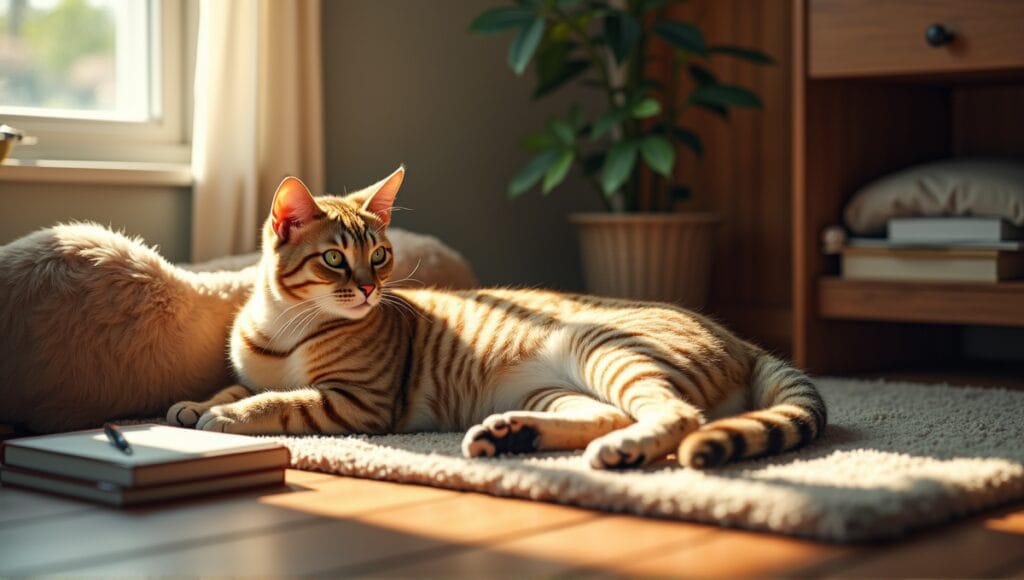
Owning an exotic cat is a long-term commitment. These animals can live for many years. The serval, for example, can live up to 20 years in captivity. You should be willing to care for the cat for its entire life.
There are also significant financial implications. Exotic cats are expensive to purchase and maintain, including:
- Special diets
- Large enclosures
- Exotic animal veterinarians
- Permits and licenses
Be prepared to ensure the cat has care for its lifetime if anything happens to you. This could involve creating a trust or designating a qualified caretaker.
There are a few educational resources for exotic cat owners, including:
- EFBC’s Feline Conservation Center
- International Society for Endangered Cats (ISEC)
- Big Cat Rescue
- The Wildcat Sanctuary
Remember, owning an exotic cat is a major responsibility. These animals require specialized care, a lot of your time, and a commitment for their entire lives. Therefore, do your due diligence before pursuing an exotic cat.
If you’re interested in cats with a wild appearance but prefer a more domesticated option, you might want to consider low-maintenance cat breeds that have exotic looks, such as the Bengal or the Ocicat.
Let’s Close This Out
Exotic cats pose special care requirements, extensive expertise, and a substantial commitment. You’ve discovered all about their needs, from the right habitat to healthcare. Just don’t forget that owning an exotic cat is a major responsibility. It requires evaluating the legal, moral, and practical considerations carefully.
If you’re willing to make the necessary commitment, an exotic cat can be an amazing pet. Always put the animal’s needs and natural behaviors first. Your exotic cat will thrive if you provide knowledgeable, responsible care.


